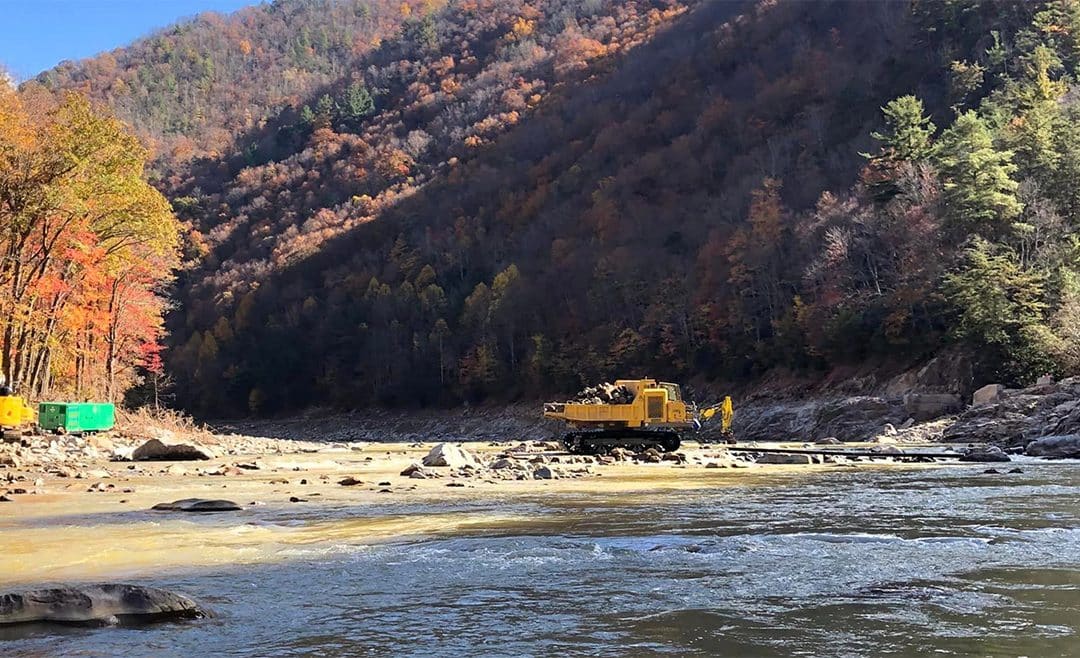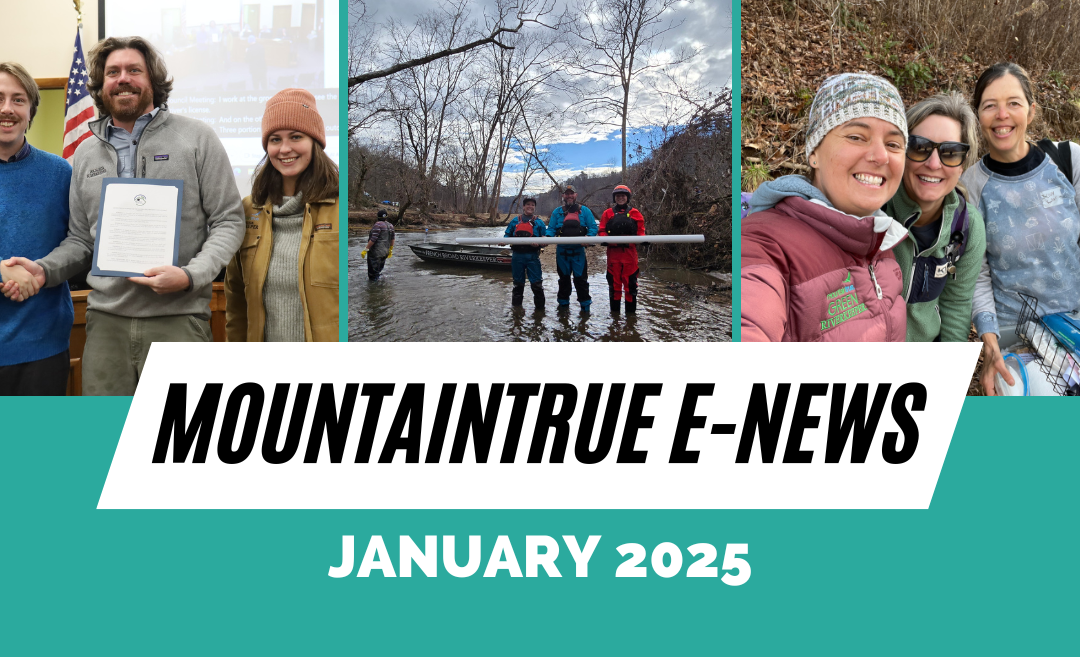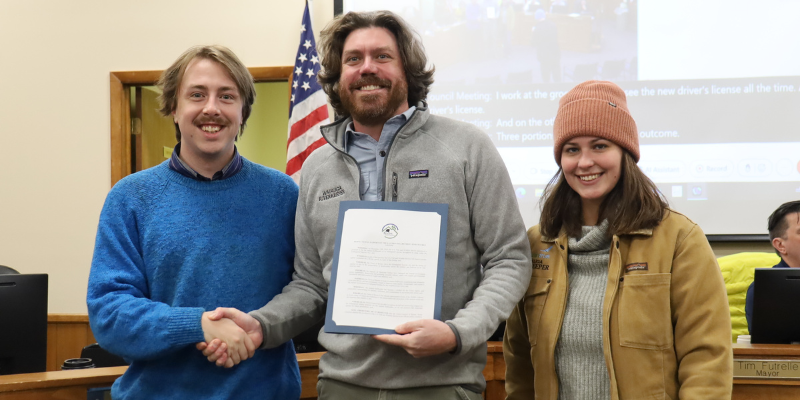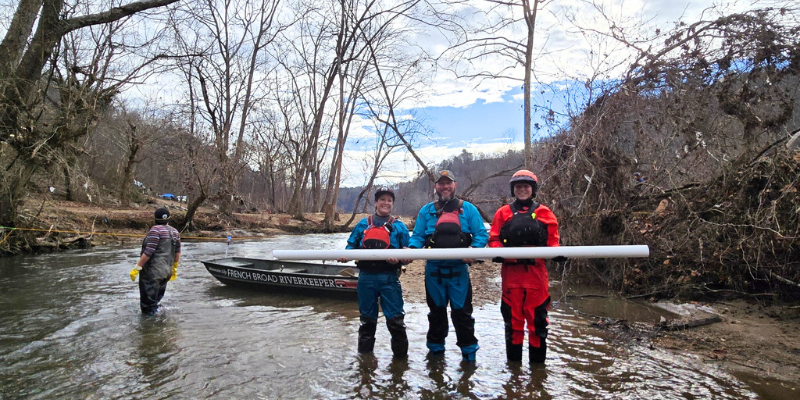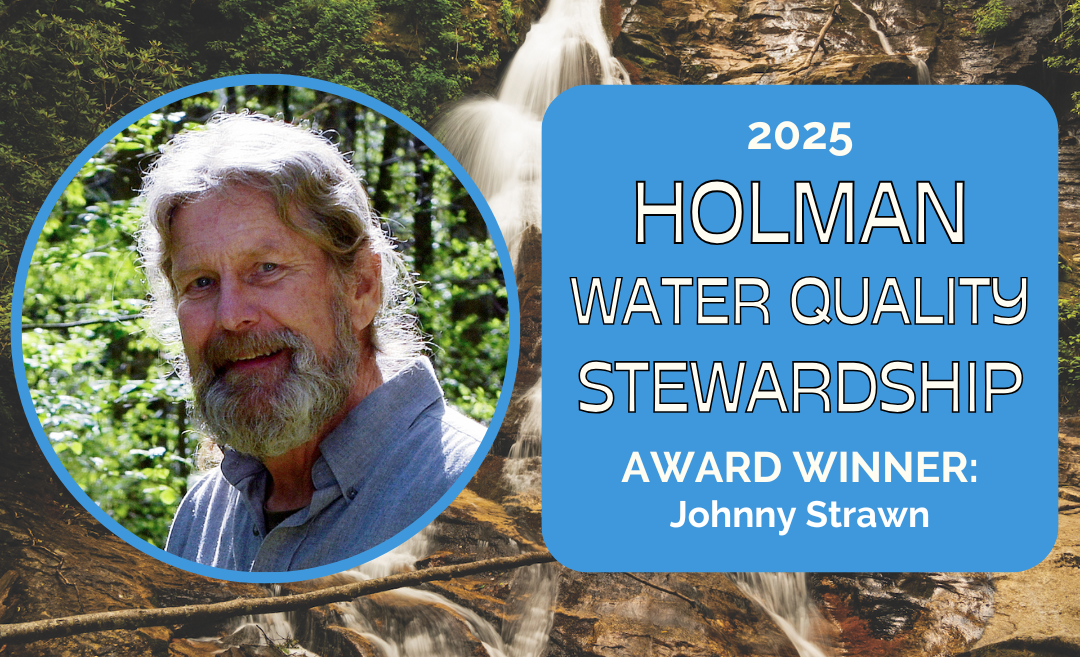
2025 Holman Water Quality Award Winner: Johnny Strawn
2025 Holman Water Quality Award Winner: Johnny Strawn
Johnny Strawn of the Hanging Dog Community of Cherokee County, NC, is the 2025 recipient of the Holman Water Quality Stewardship Award.
Originally from Morgantown, WV, Johnny Strawn attended NC State University in Raleigh, NC, where he met his wife, Pam. After graduating with degrees in conservation and wildlife biology, Johnny began working for what was then the USDA Soil Conservation Service during which time Johnny and Pam moved to Cherokee County, NC. He served as District Conservationist in Cherokee and Clay counties for nine years and they fell in love with the area. So in 1982, instead of moving on with USDA, he and Pam opened Hanging Dog Valley Nursery, a wholesale nursery specializing in native plants.
Johnny is a founder of Murphy River Walk & Canoe Trails, serving as the project manager for eight years. He received the Cherokee County Chamber of Commerce’s Citizen of the Year award in 2013 for his volunteer work on the River Walk.
Johnny has served on the board of directors for the John C. Campbell Folk School, the Cullowhee Native Plant Conference, and the Hiwassee River Watershed Coalition (now MountainTrue). He also served on the board of the Land Trust for the Little Tennessee and Mainspring Conservation Trust for 13 years. As the first Hiwassee watershed board member of the land trust, Johnny was very instrumental in the expansion of land conservation efforts beyond the Little Tennessee River corridor in Macon County.
During his time on the land trust board, Johnny and Pam began to better understand the value of conservation easements; in 2024, they put the finishing touches on a 150-acre conservation easement on their own property, a combination of seven separate tracts which over decades they melded into one cohesive piece of land.
Upon being notified that he’d been selected to receive this award and expressing gratitude for the honor, Johnny was quick to acknowledge Pam’s role in all of the accomplishments we are attributing to him. “None of this happens without Pam,” he said.
Each year, we present the Holman Water Quality Stewardship Award to the person or group who has done the most to sustain good water quality in rivers, lakes, and streams in the upper Hiwassee River watershed of Towns and Union counties in North Georgia and Cherokee and Clay counties in North Carolina. The award is named for Bill Holman, a lifelong conservation advocate currently serving as Senior Advisor to the Conservation Fund in NC. The Holman Award is sculpted by David Goldhagen of Goldhagen Blown Art Glass, whose studio is located on the shores of Lake Chatuge near Hayesville, NC.

